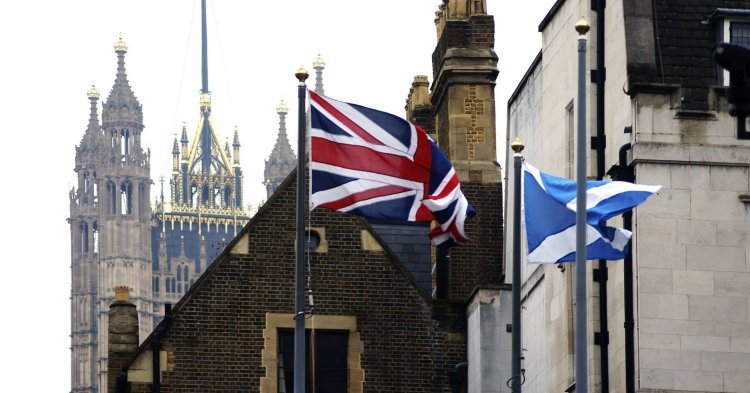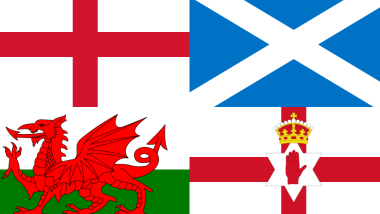Article 50 - what can the Scottish Parliament do?
Now, because an ”openly gay ex-Olympic fencer” (otherwise known by everyone but the Daily Mail as one of Britain’s most respected judges) has betrayed the bulldog-loving British people, and, for all intents and purposes, attempted to dismantle British democracy by giving the UK Parliament a say on triggering Article 50, the Scottish Government has now vowed to intervene in the process. While Theresa May’s government appeals to the Supreme Court, Scotland and Wales are requesting that the court consider whether consent from the Scottish Parliament and the Welsh Assembly is mandatory.
Almost no one in the Scottish Parliament wants Brexit. When Nicola Sturgeon announced Scotland would intervene in the process, her intention was undoubtedly to lift the Scottish issue back on the agenda, and, while also lifting eyebrows in May’s cabinet. In Scotland’s situation, this manoeuvre can be easily justified. Scotland is a nation in its own right and imposing a hard Brexit on a pro-European people would tip the slim majority to stay in the United Kingdom the other way.
Could the Scottish National Party (SNP), at two seats short of a simple majority in the Scottish Parliament, singlehandedly veto Brexit altogether? No. As per the Scotland Act, which governs the devolution settlement between Westminster and the Scottish Parliament at Holyrood, Westminster retains the right to make laws against Scotland’s will, even though the government announced that it would normally not do so. A vote on triggering Article 50 in the Scottish Parliament would be all about the legitimacy that the decision of the British parliament has in the eyes of the Scottish people.
At this point, nobody knows what the vote will actually be about if the Supreme Court rules that parliamentary consent is needed. It has been reported that in Westminster it will be three lines of “bomb-proof” legal text with no room for amendments, that is to say, bargaining. However, bargaining is exactly what Scotland wants to do, and Sturgeon has admitted that the appeal to have Holyrood vote on Article 50 is a part of that strategy. If the Scottish Parliament overwhelmingly votes against Article 50, perhaps announcing that only if free movement or some other provision paramount to Scottish interests is guaranteed will Brexit be acceptable, otherwise, there is no way to justify Brexit for Scotland. That will be a way to send Theresa May a message: what you’re doing is not what Scotland wants.
What Scotland desires
The Scottish Parliament recently debated Scotland’s relationship with the EU, notably Single Market membership. The SNP supported remaining in the Single Market, so did the pro-independence Greens, but Labour abstained while the Conservatives and the Liberal Democrats voted against. While in June all Scottish parties, bar UKIP, supported EU membership and membership of the Single Market, now it was only the pro-independence parties that were ready to stand up for Europe. Even the Liberal Democrats, who are trying to brand them as the home of the pro-Europeans in Brexit Britain, were ready to reject the Single Market out of concern that such a demand might empower forces tearing the United Kingdom apart.
What does this all mean? First, the Scottish government is as keen as ever to protect Scotland’s European future. Whoever challenges the Brexit policy of May’s government is making a valuable contribution to protect pluralist democracy, characterised by the existence of more than just one, in this case utterly irresponsible, policy alternative. Second, the Single Market vote at Holyrood served to show to what extent the question of Europe is now conflated with the question of independence in Scotland.
The Scottish people are predominantly pro-EU. It is sad that defending a European Scotland appears to increasingly mean defending an independent Scotland. On the other hand, the implicit SNP argument whereby it is only through indepdence and a bid to re-join the EU that the aspirations of 62 percent of its electorate can be fulfilled is more convincing the longer it takes for Prime Minister May to present a meaningful alternative. In the meantime, pro-European unionists are left with few choices: if you view the UK as a single, indivisible entity, there is little more you can do than sit on the backseat and scream. Right now, though, they’re not even screaming.
What to do about Scotland
Close links between Britain and the EU after Brexit would be the only way for Westminster to retain at least some of its legitimacy in Scotland when it comes to Europe. Securing a hard Brexit while ignoring Scotland’s wishes altogether would be a sure-fire way to irritate Scots, perhaps to the point of propelling it out of the UK - unless Scots do like the Scottish Liberal Democrats, Conservatives and Labour, and just abandon their European hopes.
Considering the pressure for continued links to Europe and Scottish independence, both coming from the same direction, surely the softest possible Brexit would be the best way to keep the country together. That way, at least a degree of accountability would still be there for the 62 percent.
But then again, can there be such a good compromise that can satisfy both the English, who wanted to get out, and the Scottish, who wanted to stay in? There is a great risk that what Theresa May comes up with is not enough to match what Scotland wants. One could hardly deny the validity of a Scottish project to look for more Europe by itself, be it through a special settlement within the UK or parting ways with the United Kingdom altogether.
In any case, especially in the third scenario, Europeans should value Scotland’s commitment to European unity and display it with concrete action. In the north-western corner of the EU, there exists a people and a government that is passionate about Europe. That is the kind of enthusiasm we need; Scotland is an asset to Europe, and we need to keep it in. Besides, Nicola Sturgeon embodies something that seems lamentably rare these days: a politician committing to Europe through the vision of a democratic mandate. The cause of such a leader is the cause that should animate us all.





1. On 17 November 2016 at 21:17, by Iwantout Replying to: What Scotland wants
Replying to: What Scotland wants
The Scottish Parliament, the Welsh Assembly and the Northern Ireland Assembly have no authority over foreign affairs and treaties. As such it is difficult to see how they can obstruct the UK Parliament in launching Article 50, The Great Repeal Bill nor the final Brexit agreement. All three nations after all are fully represented in the UK Parliament, indeed significantly over represented in terms of their population.
Clearly majorities in Scotland and Northern Ireland voted to remain in the EU. However the majority in England & Wales to leave were much larger. The vote was clearly a single national vote and as such the result must be seen in that way.
The only viable option for the Scots is to hold a second independence referendum. (A point Ms Sturgeon is currently backing away from due to polling evidence that remaining with the UK is more popular than staying with the EU). The problem is going to be that with the launch of Article 50 in March 2017, a Scottish Referendum will have to be held before March 2019 or the Scots will find themselves outside the EU and re applying for membership with unacceptable conditions such as euro membership etc. Therefore the SNP loses control of timing, and the loss of a second referendum within a few years of the first would almost certainly end the issue for very many years.
The ultimate point is, we were asked the question and have given the answer. There is no one of any standing suggesting that this can mean at least anything other than control over borders and removal of the authority of the ECJ. Those points alone must mean a hard Brexit.
Follow the comments: |
|
